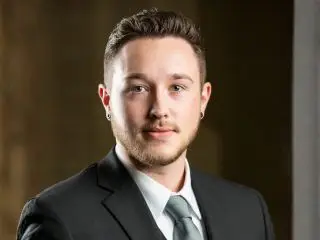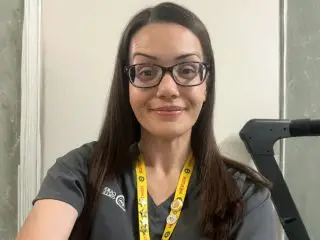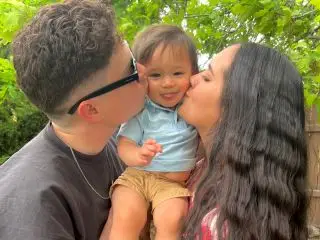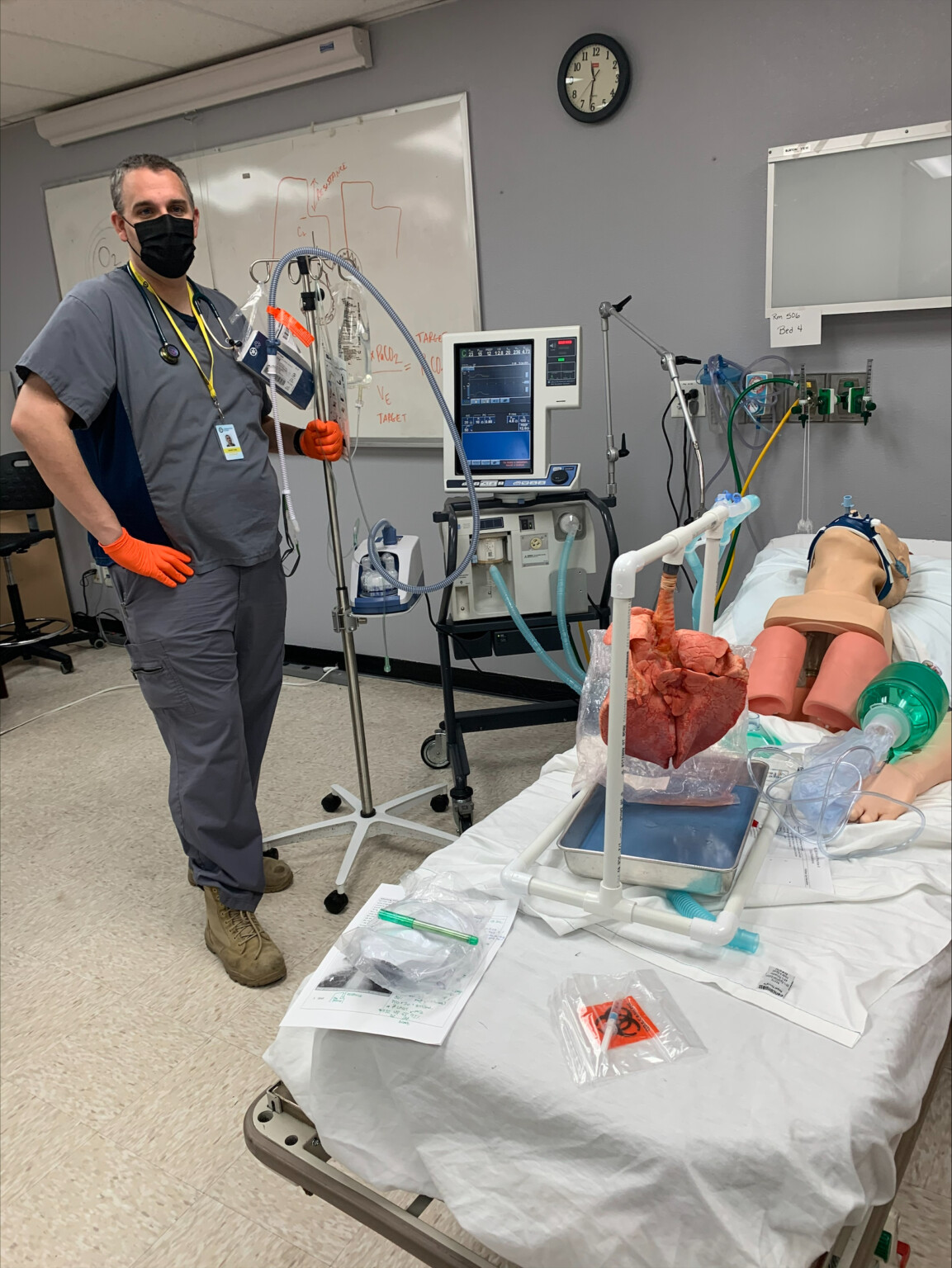 Daniel Long enjoyed being an Emergency Medical Technician and part of the Critical Care Transport team providing ground transport services within the 911 system. He was often on the front lines of a medical crew treating and transporting patients to medical facilities’ Emergency Rooms. As a transport medical services provider, Daniel handed his temporary patients off to hospital-based medical providers, never knowing their medical emergency outcome. It was often an intense, though temporary patient/medical provider connection. He needed greater patient interaction and was determined to find the professional/personal balance he envisioned.
Daniel Long enjoyed being an Emergency Medical Technician and part of the Critical Care Transport team providing ground transport services within the 911 system. He was often on the front lines of a medical crew treating and transporting patients to medical facilities’ Emergency Rooms. As a transport medical services provider, Daniel handed his temporary patients off to hospital-based medical providers, never knowing their medical emergency outcome. It was often an intense, though temporary patient/medical provider connection. He needed greater patient interaction and was determined to find the professional/personal balance he envisioned.
What was your primary motivation to move from EMT to Respiratory Therapist?
Two things: The long hours and low pay had an effect on my personal life, and I never got to know what kind of impact my medical intervention had on any of my patients – or how/if they recovered. You’re with patients for a couple of minutes to a couple of hours, but there’s no ongoing relationship. Carrington College’s Respiratory Care program opened a career door for me to have greater patient involvement.
When did you first become interested in a medical career?
As a kid, I wanted to be a paramedic. In second grade we had a career fair at our school and there was an ambulance on the field. I thought, “That’s what I want to do; I want to be in the back of that!”
Why did you set aside that medical career vision?
September 11th was pivotal for me. After high school, I enlisted in the US Marine Corps which led me into law enforcement and nuclear security where I eventually became Director of Security at a municipal airport.
How did you get back on a medical career track?
In 2016 I enrolled in a local junior college in EMS/Fire Science and earned my EMT license and 2-year Associate’s degree in Paramedicine in 2019.
What was the best part of being an EMT?
Being in an ambulance you can pull people back from this kind of abyss. It’s one-on-one patient care and the intervention and treatment we provide can save lives. But you’re with patients for such a short time – a couple of minutes to a couple of hours. It’s one-on-one patient care, but there’s no ongoing relationship of patient care.
How did your focus change to Respiratory Care?
A huge part of paramedic school was Respiratory Care and managing patient airways. I’d worked alongside some of the most amazing Critical Care Nurses who helped me to realize my specialty. Cassandra Humphrey was one who pushed me to be the best and realize my potential. The ambulance was her classroom, and she treated every day as a learning opportunity. She gave me the opportunity to manage patients’ airways and ventilators, under her watchful gaze. A ventilator is a machine that supports and controls breathing. It forces air into lungs when a patient cannot breathe on his/her own.
Why did you choose Carrington College’s Respiratory Care program?
It was the only school that worked with my full-time EMT work schedule – and Carrington adapted nicely to the pandemic, transitioning classes to online. You could wake up and in 5-minutes be ‘in class’. By fourth semester we were back in the classroom for hands-on instruction.
How did the Respiratory Care program’s curriculum fit your training needs or enhance your work experience?
I was able to take what I was taught in class directly to my job. I was able to use a theory we had just learned in the classroom at work and practice it in real time. I might have a patient who was on a balloon pump, that reinforced a theory I had just studied and could put into practice. The nurses I worked with (on my job site) allowed me to do a little more because they knew I was going to school and studying these areas and techniques. We work as a 2–3-person critical care team in an ambulance and a lot of us are going to paramedic, respiratory care or nursing school.
What was the biggest surprise about Carrington College’s Respiratory Care program?
I was surprised at the amount of responsibility a Respiratory Therapist had. I didn’t know the amount of detail and actual insight to patient care. All this knowledge, understanding, and curriculum kind of enlightened me. And the intricacies of patient care – their lives hang in the balance.
What was the best thing about your Respiratory Care program?
It’s hard to break down just one thing, but I’d have to say it was having the most caring, compassionate instructors that I’ve ever had the pleasure of knowing. They spent their time making sure we knew the material. They knew that the skills they were teaching us are going to make the difference between someone’s life or death. They took it very seriously. All were absolutely amazing. They understood that most of us did not have a medical background, so they broke information down to make it more digestible. I got to see the ‘ah ha’ moments for students who didn’t have a medical background. It made it easier for us when we had to work an actual lab together.
 What was your greatest struggle in your RC program?
What was your greatest struggle in your RC program?
Working full-time and an intense (RC) program full-time; it was time management. Trying to find time for life, in general. I have a fiancé (Stacey) and two stepchildren that I try to keep in balance. When we had clinical rotations (on-the-job training) of three 12-hour shifts each week for 14-weeks – then rotate to my ambulance job; it was crushing.
Did you have the family support you needed?
Luckily, Stacey is a Registered Nurse, so there were a lot of things I could bounce off her. We’ve been together for almost five years, and she is part of my inspiration to go to the RC program. I wanted to provide a better life for her and our two kids, Aiden (9) and Addie (7), who had never seen me out of school. At one point I wanted to drop the program, but Stacey kept encouraging me to stay and reassuring me. I ran some of my assignments by her and got her input, which was really valuable. And the kids helped me out when I did online work and I used them to do a patient assessment video. And Stacey’s parents (Terry and Kristie) watched the kids when I had finals and helped me along with a little financial support.
What advice would you give others who might consider this career direction?
It’s hard work but stick with it; it is life-changing. You’re going to get so much more money – and have a career that is fulfilling and so rewarding.
 Where did you land after completing the Respiratory Care program?
Where did you land after completing the Respiratory Care program?
I’m a Respiratory Care Practitioner at the University of California at San Francisco School of Medicine, currently assigned to San Francisco General Hospital campus – a Level I Trauma Hospital. Respiratory Therapists manage every aspect of patient respiratory care from nebulized breathing treatment to managing the sickest patient on a ventilator. One of the best feelings in the world is to have a patient on the brink of death and you are able to bring them back and then, at some point, liberate them from a ventilator. We also provide valuable input to Residents, Fellows and Attending (team of doctors managing patient care).
What are your future aspirations?
I’m adding a few letters behind my name, working on a Pediatrics specialty license and will take the exam soon. I’m interested in several specialty licenses for Neonatal Pediatrics Specialist through the NBRC (National Board of Respiratory Care). My big goal is to work on becoming a flight Respiratory Therapist; a lot of going out, picking up patients and getting them safely from aircraft to medical facility.
Who do you want to emulate in your life’s work?
My career inspiration is a critical care nurse who took me under her wing 6-years ago when I was first starting with an ambulance company as an EMT. She – we called her Mama Cass (Casandra Humphrey) – took so many EMTs under her wing and inspired them to become greater than they are. She was invested in making sure we educated ourselves every day. She influenced a lot of my decision-making and is the reason I moved up toward Respiratory Care.
What is your vision for the future?
I feel like this is a lifelong career of learning. What we knew 10 years ago has completely changed and is outdated. I want to finish up my paramedic license because it will help me advance my career in medicine. Patient focus is primary. I want to learn the whole gambit of new advancements on drug interactions, patient treatments, products and procedures. I want direct patient contact, bedside. If you stop learning, your career in health care is done. Later in life, I might want to teach.
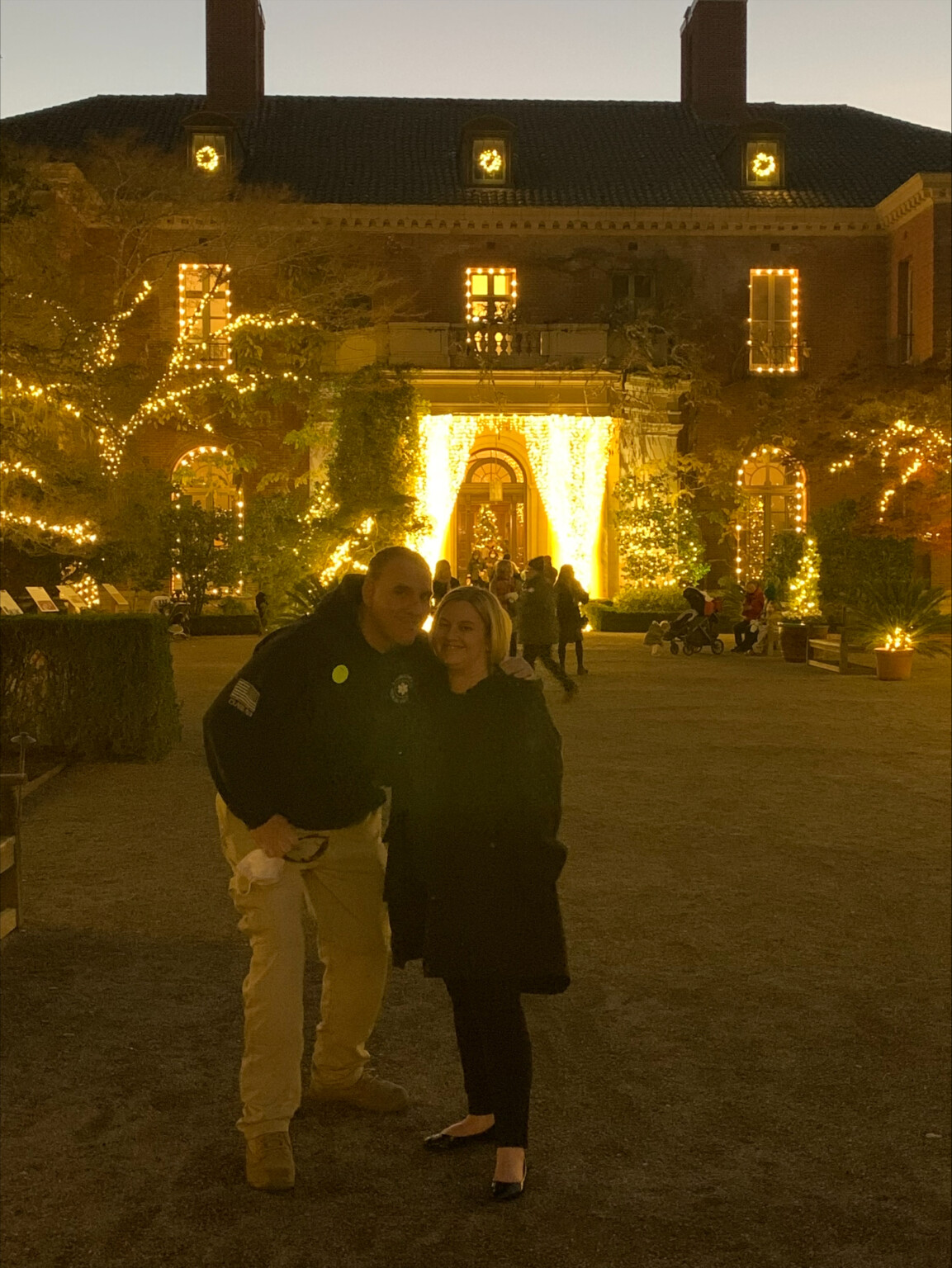 What was your greatest struggle in your RC program?
What was your greatest struggle in your RC program?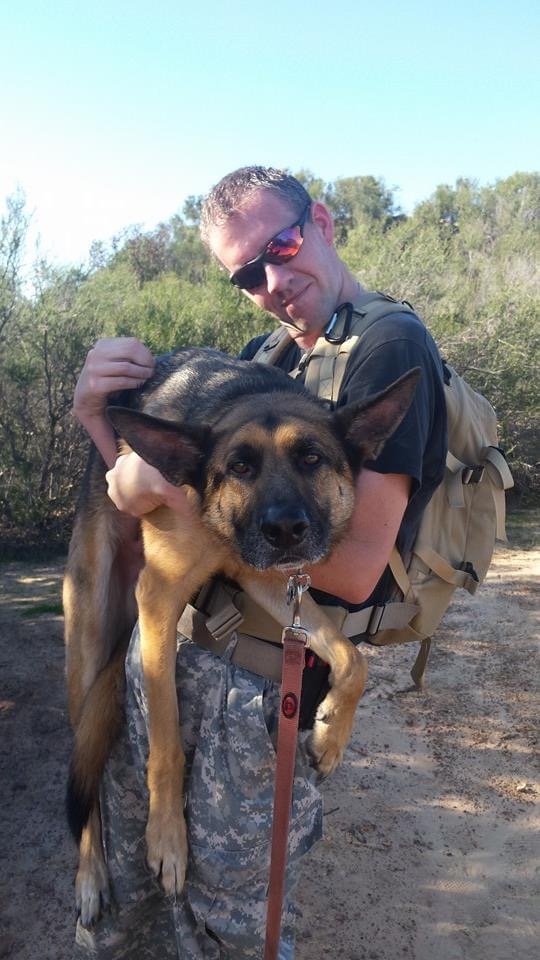 Where did you land after completing the Respiratory Care program?
Where did you land after completing the Respiratory Care program?